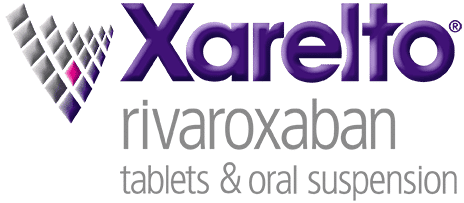预约演示
更新于:2026-02-07
Astemizole
阿司咪唑
更新于:2026-02-07
概要
基本信息
在研机构- |
权益机构- |
最高研发阶段撤市 |
最高研发阶段(中国)- |
特殊审评- |
登录后查看时间轴
结构/序列
分子式C28H31FN4O |
InChIKeyGXDALQBWZGODGZ-UHFFFAOYSA-N |
CAS号68844-77-9 |
关联
100 项与 阿司咪唑 相关的临床结果
登录后查看更多信息
100 项与 阿司咪唑 相关的转化医学
登录后查看更多信息
100 项与 阿司咪唑 相关的专利(医药)
登录后查看更多信息
1,293
项与 阿司咪唑 相关的文献(医药)2026-01-29·Toxicology Research
Advancing Torsades de pointes risk prediction: unveiling the role of drug metabolites through molecular docking
Article
作者: Tugcu, Gulcin ; Bilgin, Egemen ; Aydin, Ahmet
Abstract:
This study explores the risk of Torsades de Pointes (TdP) arrhythmia, focusing on the interactions of parent drugs and their metabolites with the Human ether-à-go-go-related gene (hERG) channel, which is crucial in cardiac electrical activity and TdP risk assessment. Using a dual-strategy molecular docking approach with AutoDock Vina and PatchDock, we analyzed clinically relevant ligand pairs: astemizole/desmethylastemizole, terfenadine/fexofenadine, and quetiapine/norquetiapine. Quantitative analysis revealed that high binding affinity does not always correlate with toxicity. For instance, the non-cardiotoxic metabolite fexofenadine exhibited a higher binding affinity (−9.3 kcal/mol) compared to its toxic parent terfenadine (−8.9 kcal/mol), but its safety is explained by physicochemical constraints (zwitterionic nature). Conversely, desmethylastemizole maintained high affinity (−9.2 kcal/mol) with a geometrically “relaxed” fit (Atomic Contact Energy: −338.36), rationalizing its sustained potency. Geometric analysis further distinguished quetiapine as a “steric blocker” (Contact Area: ~588 Å2) causing forced occlusion, whereas its metabolite norquetiapine acted as a specific ligand with a significantly smaller interface area (~417 Å2). These findings highlight the importance of focusing not only on the parent drug but also on metabolites for TdP risk assessment in new drug development. We advocate for an integrated computational framework combining binding energy, geometric complementarity, and physicochemical profiling to enhance the accuracy of early cardiac safety screenings.
2025-12-01·CTS-Clinical and Translational Science
Reassessing the Conduct of Patch Clamp Cardiac Ion Channel Assays to Improve Nonclinical Data Translation to Clinical
ECG
Changes and Proarrythmia Risk
Article
作者: De Palma, Ryan ; Ismaiel, Omnia A. ; Mistry, Sabyasachy ; Wu, Wendy W. ; Alvarez Baron, Claudia ; Guo, Donglin ; Zhao, Jun
ABSTRACT:
The Comprehensive in vitro Proarrhythmia Assay (CiPA) initiative proposes integrating multi‐cardiac ion channel pharmacology to improve the prediction of drug‐induced
Torsade de Pointes
(TdP) risk. However, several studies under CiPA have demonstrated misalignment between nonclinical and clinical data. One study showed ECG changes induced by chloroquine, lopinavir, and ritonavir suggestive of Ca
V
1.2 and Na
V
1.5 channel block. However, ion channel data used to design the clinical study showed no such interactions. Another study reported TdP cases in patients treated with vanoxerine, a drug with literature data demonstrating similar block potencies for hERG and Ca
V
1.2 channels suggesting lower TdP risk than selective hERG blockers. Finally, astemizole, risperidone, and clarithromycin—“intermediate TdP risk” CiPA drugs—were reported to have hERG‐active metabolites, yet hERG data for metabolites were not integrated when developing in silico human myocyte models for risk prediction. To increase the confidence of using nonclinical data in regulatory decision‐making, the sources of these inconsistent nonclinical‐clinical findings and data gap for metabolites need to be addressed. Here the effects of chloroquine, lopinavir, ritonavir, and vanoxerine on hERG, Ca
V
1.2, and/or Na
V
1.5 channels were studied using protocols consistent with ICH S7B Q&A 2.1 best practices. hERG block potencies for astemizole, risperidone, clarithromycin plus their major metabolites were also determined. The results showed improved alignment between ion channel block profiles and drug‐induced ECG changes and proarrhythmia, underscoring the importance of using physiologically relevant experimental protocols, accounting for ion channel‐active metabolites, and continuing to build the knowledge base of arrhythmogenesis mechanisms. Data may be found at:
https://osf.io/7rfua/
.
2025-12-01·Drug Metabolism and Pharmacokinetics
Tyrosine kinase inhibitors, nilotinib and radotinib, suppress both catalytic function and mRNA expression of human cytochrome P450 2J2 and 2C8
Article
作者: Yamazaki, Hiroshi ; Katoh, Miki ; Kojima, Ayaka ; Nadai, Masayuki
Cytochrome P450 (P450 or CYP) 2J2, which metabolizes exogenous medicines and endogenous arachidonic acid to 14,15-epoxyeicosatrienoic acid (14,15-EET), is expressed in various organs and cancer cells. Additionally, CYP2C8 catalyzes the synthesis of 14,15-EET, a vasodilator that promotes cancer cell proliferation. However, the effect of tyrosine kinase inhibitors (TKIs) used in leukemia treatment on CYP2J2 and CYP2C8 remains unclear. This study investigated the effects of 16 TKIs used for leukemia treatment on recombinant CYP2J2-and CYP2C8-mediated processes. Among the TKIs, nilotinib and radotinib strongly inhibited CYP2J2-dependent astemizole O-demethylation and rivaroxaban hydroxylation, and CYP2C8-mediated paclitaxel 6α-hydroxylation (<20 %), with competitive inhibition constants of 0.41 and 0.22 μM, respectively (for astemizole O-demethylation). Nilotinib and radotinib suppressed CYP2J2-and CYP2C8-catalyzed arachidonic acid epoxidation and decreased their mRNA expression in Huh-7 cells (possibly via the peroxisome proliferator-activated receptor α pathway). Given that their inhibition constants are lower than their reported plasma concentrations, both may substantially suppress CYP2J2 and CYP2C8 functional enzyme levels and enzymatic activities in clinical settings. This suppression could potentially alter vasodilation by affecting 14,15-EET production, influencing CYP2J2 and CYP2C8-mediated drug-disease (conditions) and drug-drug interactions.
25
项与 阿司咪唑 相关的新闻(医药)2026-02-03
随着新药研发投入不断攀升,心脏毒性(Cardiotoxicity)已成为导致临床试验失败和药物撤市的首要安全问题之一。传统细胞模型和动物实验存在物种差异大、预测性不足等局限,这促使科研界寻找更逼近人体生理的新模型。
近年来,人源心脏类器官(human cardiac organoids)作为三维生理性模型,在药物毒性评估中展现出前所未有的潜力,正成为药物筛选与心血管安全评价的“新一代哨兵”。 什么是心脏类器官?
心脏类器官是由人类诱导多能干细胞(hiPSCs)或胚胎干细胞在体外三维培养条件下自组织形成的微型“迷你心脏”。它们能模拟心肌组织结构、细胞多样性以及自主跳动、电生理特性和代谢活动,比传统二维培养模型更贴近真实人体心脏。
前沿进展一:更真实的心脏毒性评估平台
传统的心脏毒性评估,例如 hERG 通道抑制实验,虽然简单易执行,但往往无法准确预测复杂心脏反应。而心脏类器官可以:
✔ 模拟心肌细胞间的电联结与收缩活动
✔ 再现药物对组织整体功能的影响
✔ 与临床心脏损伤指标高度一致
例如有研究利用人源心脏类器官评估抗癌药物阿霉素(Doxorubicin)的心脏毒性,发现类器官表现出收缩功能下降、线粒体损伤、细胞凋亡等毒性表型,并能检测临床相关的心脏损伤标志物。
这种模型比传统单细胞更能反映药物作用下的真实心脏生理反应,是新药早期毒性筛查的有力工具。 前沿进展二:类器官与器官芯片结合
心脏类器官不再单打独斗,而是与微流控芯片等技术结合构建类器官-on-chip 系统,进一步提升仿真程度。
这种“器官在芯片上”的平台能模拟微血管化、血流剪切力、组织–药物动态输送等生理条件,为药物作用机理研究提供更立体的数据支持。
不仅如此,该平台已经用于评估环境毒素与药物的协同或累积毒性,为心血管环境病理学的研究提供了全新视角。
典型案例解析1. 心脏类器官评估阿霉素心脏毒性
研究利用人类胚胎干细胞构建心脏类器官,并用阿霉素处理,结果显示:
✔ 明显心肌收缩减少
✔ 线粒体结构损伤
✔ 细胞凋亡与纤维化增加
这一模型不仅复现了临床心脏毒性表型,还能检测到更多敏感指标,为药物安全筛查提供了更高预测价值。
2. 心脏类器官用于开发环境心脏毒性模型
一项最新综述指出,心脏类器官结合微流控芯片不仅能识别化学物质或环境因素对心脏的毒性作用,还能深入解析其作用机制,如电生理紊乱、代谢异常等,让毒性评价更具机制生物学支持。3. 心脏类器官模拟发育毒性
利用 hiPSC 自组装的类器官模型,有团队评估了一类精神类药物对心脏发育的影响,揭示药物可能干扰早期心肌命运决定,这对于孕期用药安全评估具有重要意义。挑战与未来方向
虽然心脏类器官技术发展迅速,但仍面临一些重要挑战:
🔹成熟度不足:当前类器官多呈胎儿或幼稚心脏状态,与成人心脏仍有差距。
🔹标准化缺失:不同实验室构建方法差异大,难以形成统一标准。
🔹高通量难题:类器官的规模化、自动化生产仍需突破。
未来的研究重点包括:
✨ 将心脏类器官与 AI 数据分析结合,提高毒性预测准确性
✨ 多器官联用模型(心–肝–肾)系统性评估药物全身毒性
✨ 推进标准化生产、功能性成熟和工业化应用
这些方向将帮助心脏类器官真正从科研走向临床前评价与药物监管工具。
心脏类器官作为一种高仿真、功能完整、可人源化的先进模型,正在快速改变药物毒性评估格局。它不仅提升了早期风险预测能力,还在疾病建模、发育毒性、环境毒素研究等领域展示了巨大潜力。
在科技驱动下,这项技术将在未来几年持续驱动心血管安全评价和精准毒理学研究的革新。
第二个问题,哪些药物可以适用心脏类器官去评估毒性?一、 抗肿瘤药物(应用最成熟)
为什么适合?
抗肿瘤药是心脏毒性最明确、最常见的一类药物,而心脏类器官能同时评估:心肌收缩功能,线粒体损伤,心肌细胞凋亡,纤维化与炎症反应
重点评价指标:跳动频率与节律变化,收缩幅度下降,心肌损伤标志物(如 cTnT),线粒体功能、ROS 水平
典型药物
蒽环类:Doxorubicin(阿霉素)(最经典案例)
Trastuzumab(曲妥珠单抗)
Tyrosine kinase inhibitors(TKIs)
目前心脏类器官在“抗癌药心脏毒性”领域已经接近“金标准模型”二、影响心脏电生理的药物(替代 hERG 的重要方向)
为什么适合?
传统 hERG 只看一个离子通道,而心脏类器官可以反映:
多离子通道协同效应
心律失常整体表型
QT 延长相关风险
重点评价指标:电生理活动(MEA),动作电位时程,心律失常样表型
典型药物:抗心律失常药(如 Quinidine),抗组胺药(Astemizole,已撤市),部分抗生素(如 Macrolides)
非常适合用于“早期淘汰潜在致心律失常药物”三、精神类 / 中枢神经系统用药(近年研究热点)
为什么适合?
很多精神类药物并非“心脏靶向”,但临床却出现:QT 延长,心律失常,发育期心脏风险,心脏类器官能揭示这种“非预期心脏毒性”。
重点评价指标:发育阶段心脏结构变化,心肌细胞分化异常,长期低剂量慢性毒性
典型药物
抗抑郁药(如 Maprotiline)
抗精神病药(如 Clozapine)
情绪稳定剂
尤其适合“发育毒性 + 慢性毒性”评估四、心血管系统用药(安全性与有效性双评估)
为什么适合?
对心脏本身起作用的药物,既要评估疗效,也要防止:过度抑制心功能,诱发心律异常,结构重塑异常
重点评价指标:正性/负性肌力作用,心肌肥厚或纤维化,长期结构改变
典型药物:β 受体阻滞剂,钙通道阻滞剂,新型心衰治疗药物
可用于“机制研究 + 剂量窗口优化”五、 环境毒物 & 化学品(非药物,但非常重要)
为什么适合?
越来越多研究发现,环境暴露对心脏影响显著,而传统模型难以预测。
重点评价指标:慢性心功能损伤,电生理紊乱,代谢与炎症反应
典型物质:重金属(镉、铅),农药、工业化学品,空气污染相关成分
这是“心脏类器官 + 器官芯片”的重要应用方向六、发育期用药(孕期安全性评估新方向)
为什么适合?
心脏类器官可模拟早期心脏发育阶段,这是动物模型和 2D 细胞很难做到的。
重点评价指标:心脏结构形成异常,心肌分化障碍,长期发育轨迹改变
典型药物:孕期用药候选分子,尚缺乏充分安全数据的新药
极具潜力,但目前仍主要用于科研阶段一张“适用药物类型速览表”
药物类别
是否成熟
评价重点
抗肿瘤药
⭐⭐⭐⭐⭐
心肌损伤、收缩、线粒体
电生理影响药
⭐⭐⭐⭐
心律失常、QT 风险
精神类药物
⭐⭐⭐⭐
慢性毒性、发育风险
心血管药物
⭐⭐⭐
功能 & 安全双评估
环境毒物
⭐⭐⭐
慢性损伤、机制
发育期用药
⭐⭐
心脏发育毒性
参考文献
Yaqinuddin Aet al.Cardiac organoids: a new tool for disease modeling …Front Cardiovasc Med.2025.
Xu YY, Wang ZM.Cardiac Organoids: Emerging Tools …Biomed Environ Sci.2026.
Chen Met al.Human Cardiac Organoids: Advances and Prospects …Cells.2025.
Chen Xet al.A novel model for evaluating drug cardiotoxicity …PubMed.2023.
Xiao Yet al.Human iPSC-derived self-assembled cardiac organoids …Life Med.2025.
2026-01-26
·生物通
hERG检测在预测新药致心律失常潜力方面的价值
QT间期延长和TdP
QT间期延长是发生尖端扭转型室速(TdP)——一种潜在致命的药物相关性室性心律失常——的危险因素。延长的QTc间期代表了心室动作电位复极期的延长。获得性长QT综合征主要由心脏病、电解质异常或暴露于阻断钾电流(尤其是快速延迟整流钾电流IKr)的药物引起。TdP是一种罕见的多种形态室性心律失常,可导致头晕、心悸、晕厥和癫痫症状,并可能恶化为心室颤动和心源性猝死。其风险因素包括年龄大于65岁、女性、先天性长QT综合征、心动过缓、电解质异常、心脏病、肝药物代谢受损以及使用已知可延长QT间期的药物等。多种药物,如抗心律失常药、大环内酯类、氟喹诺酮类、抗精神病药等,均与TdP相关。
hERG
hERG蛋白,也称为电压门控钾通道亚基Kv11.1,在心脏复极化中扮演重要角色,它形成了负责复极化IKr电流的hERG通道的孔道。抑制该通道是许多非抗心律失常药物引起QT延长相关TdP的原因。研究表明,hERG半数抑制浓度(IC50)与最大血浆浓度(Cmax)的比值与肇事药物的TdP发生率相关,支持其在临床决策中的应用。目前正在开发调节hERG通道活性的新药理学策略以及挽救有缺陷的hERG通道运输的方法。
ICH关于心脏复极化延迟的指南
过去二十年,评估药物引起QT间期延长和TdP心律失常倾向的心脏安全性筛查一直依据ICH指南进行:ICH S7B安全性指南和ICH E14有效性指南。ICH S7B指南提出了确定非心血管药物延迟心室复极化倾向的非临床测试策略,推荐进行体外hERG检测。ICH E14指南则提供了评估药物延迟心脏复极化潜力的临床研究的设计、实施、分析和解释的建议。这些指南的实施标志着致心律失常心脏安全性评估的规范化。
体外hERG检测
体外hERG检测评估药物对hERG介导的离子电流的影响,在早期心脏风险检测中起着重要作用。该检测通常在异源过表达人hERG通道蛋白的细胞上进行,通过单细胞膜片钳电生理学研究,记录不同浓度受试药物作用下的hERG介导电流。该检测灵敏度高,能够识别出在体内表现出与hERG抑制相关的心脏毒性的化合物,例如特非那定、阿司咪唑和西沙必利。然而,该检测也可能缺乏灵敏度,因为不直接阻断hERG的化合物仍可能引起QT延长;同时其特异性不足,并非所有在体外抑制hERG活性的化合物都会在体内引起心脏毒性,例如雷诺嗪、维拉帕米和胺碘酮。hERG检测结果的局限性导致了显著的研发成本,包括潜在创新候选药物的过早终止、临床阶段需要密集的心电图(ECG)监测等。其临床预测性有限,因为它仅评估hERG钾离子通道,而未评估其他临床相关的心脏离子通道及其正常相互作用,也未评估与心肌细胞活力相关的生物学效应,可能导致假阴性和假阳性预测。
CiPA
ICH S7B和E14监管指南成功地防止了潜在致心律失常药物上市,它们灵敏度高但对预测哪些药物具有致心律失常性并不特异。为此,美国食品药品监督管理局(FDA)提出了CiPA倡议,旨在提高预测准确性和选择性,开发全球合作,并消除对常规全面QT(TQT)研究的需求。CiPA由多个合作者组成,旨在开发和验证一种新的体外心脏安全性评估范式,提供更准确、更全面的基于机制的致心律失常潜力评估。CiPA的四个组成部分包括:药物对多个人类心脏离子电流的影响;人类心室电生理的计算机(in silico)重建;药物对人类干细胞来源的心室肌细胞的体外影响;以及对意外电生理学的临床评估。基于药物对多种心脏离子通道电流的体外数据,CiPA的计算机模型将药物分类为TdP“低风险”、“中风险”或“高风险”。若成功实施,CiPA将能够应用机制性方法指导早期药物筛选,为具有hERG阻断和/或QTc延长但致心律失常风险低的药物提供发展路径,并更新药物标签信息。CiPA范式与ICH S7B/E14方法的关键区别在于其目标是基于机制(人类)研究定义致心律失常风险,而不仅仅是检测复极化延迟。
当前挑战
CiPA倡议面临一些挑战和局限,包括需要大量工作和数年测试才能最终更新监管指南、方法全面验证所需的时间精力,以及现有技术多在室温而非生理温度下进行高通量离子通道工作等。ICH S7B和E14工作组正在讨论监管文件的修订,包括引入了双重阴性非临床情景(即hERG检测和体内QTc研究均为阴性)以证明药物无QT风险。对于多肽和蛋白质药物,ICH S7B体外检测通常不适用,因为这类分子直接作用于心脏离子通道的可能性低。许多研究者认为,人类诱导多能干细胞(hiPSC)来源的心肌细胞是一种有前景的人类心脏体外模型系统,可用于评估新药候选物的致心律失常和非致心律失常心脏毒性,并可能补充CiPA用于监管目的。此外,在当前“大数据”时代,使用人工智能(AI)方法预测hERG通道抑制和心脏毒性也显示出巨大潜力,多种机器学习模型已被开发并显示出良好的预测性能。
结语
QT延长是临床实践中严重的不良反应,也是药物撤市的重要原因,因其可能与致命性室性心律失常TdP相关。因此,在早期药物研发中应常规进行全面的心血管风险评估。hERG通道抑制试验是识别体内hERG抑制相关心脏毒性化合物的敏感测量方法。ICH S7B和E14指南自2005年以来确保了TdP风险的充分评估。然而,hERG检测和QT间期对其阳性预测价值及致心律失常风险的预测存在不足,且并非所有体外抑制hERG活性的化合物都会在体内引起心脏毒性。由于临床前和临床试验中TdP发生率极低且其发病机制尚未完全阐明,TdP的替代标志物仍然难以找到。CiPA倡议旨在设计一种比hERG检测加TQT研究具有更高特异性的新药致心律失常潜力评估方法。在早期药物研发中进行密集的ECG监测与暴露反应分析,结合CiPA倡议所述的更稳健的临床前评估,可能减少对TQT研究的需求。使用hiPSC来源的心肌细胞进行药物效应的非临床研究可能为评估药物安全性和有效性提供新的可能性。此外,AI模型也有望成为预测新药hERG倾向性的有力工具。未来关于致心律失常风险评估的研究需要药物监管机构、学术界、制药工业和医疗专业人员之间采取综合方法。
临床1期临床终止
2026-01-11
知道自己知道
在她成为药物化学家的第十七年,她终于能够说出那件事了:她看见分子的方式,和她当年看见它们的方式,已经完全不同。
这不是视力的变化。如果你递给她一张结构式,比如说,一个带有哌啶环的杂环化合物,侧链上垂着一个三氟甲基,她的眼睛扫过它的速度和从前一样。变化发生在更深的地方,在视网膜信号抵达意识的那段黑暗通道里。某种东西在那里生长了。它不请自来,却成了她最可靠的向导。
她曾试着向一位年轻的博士后解释这件事。她们站在液质联用仪旁边,等待一个化合物的代谢稳定性数据。屏幕上跳出数字:半衰期,四十三分钟。博士后皱起眉头,觉得太短了。而她,在数字出现前的那一瞬间,已经知道它会短。不是猜测,是知道。当她看见那个分子的时候,她的某个部分已经把它放进了肝脏里,看见它被CYP3A4的活性口袋俘获,看见那个裸露的苄位碳原子像一盏点亮的灯,朝着代谢酶招手。
“你怎么知道的?”博士后问。
她不知道她怎么知道的。这就是问题所在。
普里莫·莱维写过,每一种元素都是一扇门。氩是惰性的,它教会他宿命;氢是最轻的,它让他想起青年时代的轻率与爆发。对她而言,每一个分子都是一个问题,不,更准确地说,每一个分子都是一个回答,只是她常常忘了自己问过什么问题。
当她盯着一个新化合物的结构式时,她的大脑在做什么?
神经科学家会说:模式识别。你见过几万个分子,你的神经网络已经把规则内化了。LogP太高意味着代谢不稳定,芳香环太多意味着hERG风险,氢键供体超过五个意味着渗透性会出问题,这些规则像年轮一样,一层层地长进了突触权重里。
但这个解释漏掉了某种东西。
漏掉了手感。
一个经验丰富的药物化学家看见分子的方式,和一台机器读取SMILES字符串的方式,有一种微妙但决定性的差异。机器可以计算LogP,可以预测代谢位点,可以从数据库中检索出几百条构效关系。但机器不会在看见一个分子时感到不安。机器不会说:“这个分子……有什么地方不对。”然后花三天时间追踪那种不安的来源,最后发现是一个隐藏的分子内氢键锁住了构象,让它在生理pH下变得异常顽固。
她把这种能力称为分子直觉。
在过去的二十年里,她试图理解它。不是为了把它教给别人,那可能是不可能的,而是为了理解她自己。一个药物化学家的大脑里,究竟装着什么?那些在毫秒间闪过的判断,那些”不用想就知道”的决定,它们的结构是什么?
后来她意识到,她的直觉并不是一个单一的能力。它是一座建筑,有五层楼。
最底层,是分子本身的语言:电子云的疏密,构象的呼吸,极性表面的明暗。这一层是几何的,是量子的,是关于”这个分子是什么”的知识。
第二层,是对话的语言:分子如何找到蛋白质的口袋,如何用氢键、疏水作用、π-π堆积编织成一张网,如何在那片黑暗的结合界面上跳一支舞,然后决定是停留还是离开。
第三层,是旅途的语言:分子进入人体后的命运,它能否穿过肠壁,它会被哪一种酶氧化,它会不会卡在某个转运蛋白的门口,它的代谢物会不会回来咬我们一口。这一层是药代动力学,是ADMET,是把一个孤立的分子放进七十公斤混沌系统里之后的一切后果。
第四层,是工匠的语言:设计出来的分子,有没有人能把它做出来?需要几步反应?需要什么原料?成本是多少?能不能放大到千克级、吨级?这一层是合成化学,是从纸上的结构到烧瓶里的粉末之间那段最朴实也最残酷的距离。
最后一层,是承诺的语言:这个分子能不能变成药?它治疗的疾病有多少患者?它比现有的疗法好在哪里?它能不能通过临床试验,能不能被监管机构批准,能不能被患者负担得起?这一层是临床转化,是商业可行性,是分子的终极意义,如果一个分子永远无法抵达需要它的人手中,那么它的美丽就只是实验室里的孤芳自赏。
五层楼,层层相扣。
她花了很长时间才看清这座建筑的形状。更长的时间,才明白各层之间的楼梯是怎么搭建的,那些因果链条,那些此消彼长的权衡,那些从分子最底层的电子密度一路传递到临床疗效的涟漪。
这篇内心独白,是她绘制这座建筑的一次尝试。
它不是教科书。教科书里有规则,这里只有直觉的影子。它也不是论文。论文需要证据和数据,而直觉的本质恰恰是它跑在证据前面。这更像是一份地图,一份药物化学家大脑内部的地图,画出来的目的,是让她自己看清她是如何知道她所知道的东西的。
也许读到这里的人会在其中认出自己。
也许会发现自己内心的那座建筑,比她的多了一层,或者少了一层,或者楼梯的位置完全不同。那也很好。直觉是私人的。但私人的东西一旦被说出来,就有了成为公共语言的可能。
让我们从第一层开始。
让我们从电子开始。
第一层:分子的母语电子的疏与密
每一个分子,在成为药物之前,首先是一团电子云。
这听起来像是废话。当然了,分子是由原子组成的,原子核外面包裹着电子,这是中学化学的内容。但她想说的是另一件事:当她看见一个分子结构式的时候,她的大脑首先”看见”的,不是原子和化学键,而是电子的分布。哪里富集,哪里稀薄。哪里是给予者,哪里是索取者。
这是分子的第一性格。
想象一个羰基。碳和氧之间的双键,把一个分子劈成两个世界:氧原子那一侧,电子云浓稠如墨,负静电势在那里堆积,形成一个亲核位点,它渴望被正电荷接近,渴望氢键供体的靠近,渴望金属离子的配位。而羰基碳那一侧,电子被氧拉走,留下一片缺电子的荒地,一个亲电位点,它对亲核试剂敞开大门,对富电子的氮、硫、氧伸出看不见的手。
这种不对称,是分子性格的起点。
她见过太多年轻化学家,他们能准确地画出分子的结构,却看不见电子的流向。他们会问:“为什么这个酰胺键这么稳定?”答案写在电子云里:氮上的孤对电子离域进入羰基的π体系,形成部分双键性质,让原本可以自由旋转的C-N键变得僵硬。他们会问:“为什么这个芳环上的氟取代基增强了活性?”答案还是在电子云里:氟的强吸电子效应改变了整个环系的电子密度,让某个位置变得更容易接受氢键,或者改变了环的偶极矩方向,让它更好地嵌入蛋白口袋的极性区域。
HOMO与LUMO,最高占据分子轨道和最低未占分子轨道,是电子世界的两个边境。HOMO是分子愿意交出电子的地方,决定了它的给予倾向;LUMO是分子愿意接受电子的地方,决定了它的索取倾向。两者之间的能隙,则是分子性格的”硬度”:能隙大,分子稳定而惰性,像一个不轻易动感情的人;能隙小,分子活泼而敏感,随时准备投入化学反应的怀抱。
当她看见一个分子的时候,这些信息会在瞬间涌入她的意识。她不是在”计算”,计算需要时间,她是在”感知”。就像一个经验丰富的棋手看见棋局时,不是在计算每一步的可能性,而是直接”看见”了局势的好坏。
这种感知是怎么形成的?她想是通过无数次的校准。每一次她根据结构式预测分子的行为,然后用实验结果验证或推翻这个预测,她的直觉就被微调一点点。几千次、几万次之后,那些规则就沉入了意识之下,变成了一种本能。
但她必须承认:电子结构只是故事的开始。一个分子不是一张平面的结构图,它活在三维空间里。
构象的呼吸
分子是活的。
这句话听起来像是比喻,但在某种意义上,它是字面意思。一个分子不是一个静止的雕塑,它在不断地运动,原子在振动,键在拉伸和弯曲,整个分子在呼吸。而在所有这些运动中,最让药物化学家牵挂的,是构象的变化。
构象,是分子通过单键旋转而采取的不同空间形态。想象一条项链,每一颗珠子是一个原子,珠子之间的绳子是化学键。双键像是被胶水粘住的两颗珠子,无法相对旋转;但单键是灵活的铰链,允许分子的不同部分相对转动。一个拥有七八个可旋转键的分子,理论上可以采取成千上万种不同的构象,有些伸展如长蛇,有些蜷缩如刺猬,有些扭曲成意想不到的形状。
但自然界是公平的。不是每一种构象都同样稳定。有些构象能量低,分子喜欢待在那里;有些构象能量高,分子只会匆匆路过。统计力学告诉我们,在任何给定温度下,分子会按照玻尔兹曼分布在各种构象之间分配自己,能量越低的构象,被占据的概率越高。
这是热力学的故事。但对药物化学家来说,故事远比热力学复杂。
因为分子的”最稳定构象”,那个全局能量最低的形状,很可能不是它发挥作用时的形状。当一个小分子挤进蛋白质的结合口袋时,它必须适应口袋的几何形状,为此它可能需要扭曲自己,采取一个在溶液中并不常见的构象。这个”生物活性构象”可能远离能量最低点,分子必须付出一笔构象能量的代价才能抵达那里。
这就是构象熵的惩罚。一个非常柔软的分子,拥有很多可旋转键,在溶液中自由自在地呼吸,享受着高熵的快乐。但当它必须固定成某个特定形状去结合蛋白时,它失去了这种自由,熵降低了,自由能升高了。这就是为什么,两个分子如果拥有相同的结合口袋相互作用,但一个刚性、一个柔性,刚性的那个往往亲和力更高,因为它从一开始就没有太多构象自由可以失去。
她见过一个经典的案例。团队曾经有一个先导化合物,活性很好,但可旋转键有九个。在优化过程中,他们引入了一个环化策略,把一段柔性链封闭成一个六元环,同时减少了三个可旋转键。新分子的体外活性几乎不变,但体内暴露量却大幅提升。原因?减少了分子的柔性,不仅提高了结合熵贡献,还改善了渗透性,柔性分子在穿越细胞膜时要付出更大的熵代价。
当她看见一个分子的时候,她会想象它在呼吸。她会问:它有多少种呼吸方式?它最喜欢怎么呼吸?当它被蛋白口袋抱住时,它必须憋着气吗?憋气的代价有多大?
这种想象能力,不是来自教科书,而是来自无数次看见分子在晶体结构中的姿态,看见它们在模拟中扭动,看见构效关系数据中那些无法用简单规则解释的异常点。慢慢地,分子在她脑中变得立体了,动态了,活了。
极性的地图
如果说电子密度是分子的性格,构象是分子的姿态,那么极性就是分子的地图。
极性表面积,PSA,是药物化学中最常用的参数之一。它指的是分子表面上那些暴露在外的极性原子(主要是氮和氧)所占据的面积。这个数字之所以重要,是因为它与分子能否穿越生物膜密切相关:极性表面积太大,分子就像一个穿着湿衣服的人,很难挤过细胞膜的疏水内层。
但PSA只是一个平均数。它没有告诉你极性分布在哪里。
一个有经验的药物化学家会在脑中绘制分子的极性地图:这里是一个氢键供体,它朝哪个方向?那里是一个氢键受体,它能被什么遮蔽?如果把这个极性基团藏在分子内部,让它形成一个分子内氢键,极性表面积会下降多少?这种”掩蔽”策略,是药物化学中最精妙的技艺之一。
环孢素A是一个著名的例子。这个十一肽的分子量超过一千道尔顿,远远超出了传统的”类药五规则”范围。按照常理,它不应该有口服生物利用度。但它偏偏有,大约30%。秘密在于,环孢素A在非极性溶剂中会改变构象,形成多个分子内氢键,把极性基团藏在内部,变成一个疏水的球。这种”变色龙”行为,让它能够穿越细胞膜。
当她评估一个新分子时,她会问:它的极性地图是什么样的?极性基团是暴露的还是掩蔽的?它有没有可能玩变色龙的把戏?如果需要降低极性,应该删除哪个氢键供体,是那个对活性至关重要的,还是那个只是搭便车的?
偶极矩是另一个极性指标,但它是一个矢量,有方向。两个分子可能有相同的PSA,但偶极矩的方向完全不同。这种差异会影响分子在蛋白口袋中的取向偏好,影响结晶行为,影响溶解度。有时候,一个药物化学家盯着两个相似的分子,一个成盐容易,一个怎么也不成盐,原因就藏在偶极矩的方向里。
极性地图、偶极矩、氢键能力,这些参数共同构成了分子的”亲水面貌”。而亲脂性,用LogP或LogD来衡量,则是硬币的另一面。一个分子必须在亲水和亲脂之间取得平衡:太亲水,无法穿越细胞膜;太亲脂,会被脂肪组织吸走,会被代谢酶盯上,会和hERG钾通道发生不该发生的恋情。
这种平衡,是药物化学中永恒的主题。每一次优化,都是在这条钢丝上跳舞。
第二层:蛋白质的语言口袋里的世界
分子必须找到它的归宿。
对于一个药物分子来说,归宿是蛋白质上的一个结合口袋。那是一片微观的地形,方圆不过几百平方埃,却藏着疗效和毒性的全部秘密。
当她看见一个靶点蛋白的晶体结构时,她首先看的不是配体,而是口袋本身。口袋的体积有多大?形状是深井型、浅碟型,还是隧道型?表面的极性分布如何,哪里是疏水的荒漠,哪里是极性的绿洲,哪里有带电的驿站?口袋是刚性的铸模,还是柔性的手套?
这些问题的答案,决定了什么样的分子能够在这里安家。
一个深而窄的口袋,偏爱长而瘦的分子,像一把钥匙插入锁孔。一个宽而浅的口袋,更适合扁平的芳香体系,像一枚硬币落入槽中。蛋白-蛋白相互作用的界面,通常又大又平,是药物化学中最难攻克的地形,没有现成的洞穴可以钻,你必须想办法在一片开阔地上站稳脚跟。
但口袋不是静止的。蛋白质是活的,它也在呼吸。口袋的入口可能时开时合,像一扇活页门;口袋的某个侧壁可能在配体靠近时让出位置,露出隐藏的次级口袋;有些蛋白甚至有多个完全不同的构象,像是同一个人的不同面孔,配体可以选择与哪一面对话。
这种柔性,既是机会,也是陷阱。机会在于,你可以设计诱导契合的配体,让蛋白为你敞开隐藏的空间。陷阱在于,晶体结构只是蛋白质的一张快照,你不知道在溶液中、在细胞里、在病人体内,这个口袋是否还是同一个形状。
她曾经在一个激酶项目上栽过跟头。晶体结构显示一个美丽的变构位点,团队为它设计了一系列配体,体外活性漂亮得像教科书。但到了细胞实验,活性消失了。后来用核磁共振和分子动力学模拟发现,那个变构口袋在生理温度下几乎不存在,它只是结晶条件下的一个人工制品。晶体结构骗了他们。
从那以后,她对口袋的信任多了一层审视。晶体结构是重要的,但它不是真相的全部。真相在动态中,在平均中,在蛋白质整个构象系综的叠加中。
键的语法
分子与蛋白质之间的对话,是用相互作用力写成的。
氢键是最常见的词汇。一个氢键供体,通常是N-H或O-H,指向一个氢键受体,通常是羰基氧、醚氧、或含氮杂环,形成一条方向性的吸引力。好的氢键需要合适的距离(2.5到3.2埃)和合适的角度(接近180度)。一个角度偏了20度的氢键,强度可能下降一半。
但氢键不是越多越好。每增加一个氢键供体,分子的极性表面积就增加一点,渗透性就下降一点。这是一笔交易:你用活性换取成药性,或者反过来。一个高水平的药物化学家,会追求”氢键效率”,用最少的氢键,锚定分子的最关键位置,让每一个极性基团都物有所值。
疏水作用是另一种语言,它不像氢键那样有明确的方向,但它的贡献常常更大。当一个非极性的分子表面贴近蛋白质的疏水残基时,原本笼罩在这两个表面上的水分子被释放出去,回到水体的怀抱,获得了熵的自由。这种”疏水效应”是驱动结合的主要热力学动力之一。
π-π堆积发生在芳香环之间,配体的苯环与蛋白质的苯丙氨酸、酪氨酸、色氨酸侧链形成平行或T型的堆叠。这种作用力强度中等,但方向性强,往往决定了配体的精确取向。阳离子-π作用则更微妙:一个质子化的氮,比如赖氨酸侧链的铵基,可以与芳香环的π电子云形成吸引。这种作用力常常被忽视,却经常在关键时刻解释那些”不合理”的构效关系。
卤键是近年来才被药物化学家重视的相互作用。氯、溴、碘原子在与碳相连的方向上会形成一个正静电势区域(σ-hole),可以与蛋白质上的羰基氧或其他路易斯碱形成类似氢键的定向吸引。氟太小,不形成显著的卤键;但氯和溴是完美的卤键供体。她见过好几个案例,把一个甲基换成氯原子,活性提升了十倍,不是因为疏水性的变化,而是因为一个卤键的形成。
盐桥是带电基团之间的静电吸引:配体上的羧酸负离子与蛋白质上的精氨酸胍基正离子,或者配体上的铵正离子与蛋白质上的天冬氨酸羧基负离子。盐桥很强,但代价很高:带电基团大大增加分子的极性,通常意味着放弃口服给药的梦想。除非,你能让那个电荷在结合时才暴露,在穿膜时保持中性,这是另一种高级技艺。
金属配位是特殊情况下的语言。锌蛋白酶、基质金属蛋白酶、碳酸酐酶,这些靶点的活性位点有一个金属离子,配体必须用螯合基团抓住它。羟肟酸、巯基、羧酸、磷酸……不同的金属有不同的配位偏好。设计一个金属配位药物,就像给金属定制一副镣铐。
最后,还有水。结合口袋里通常有结构水分子,它们桥接配体和蛋白质,形成水介导的氢键网络。这些水有时可以被配体取代,释放它们会带来熵增,有时则非常稳定,试图取代它们会付出焓的代价。判断一个水分子该不该动,是药物化学中最微妙的决策之一。
她脑中有一本语法书,记载着所有这些相互作用的规则。当她看见一个配体-蛋白复合物的结构时,她会快速扫描:这里有几个氢键?质量如何?疏水接触面积有多大?有没有被忽视的卤键或阳离子-π作用?有没有紧张的几何关系暗示着优化的空间?
这种扫描在毫秒间完成。然后她会给这个结合模式打一个分,不是数字,是感觉。“这个结合模式很舒服。”“这里有点紧,可以松一松。”“这个氢键看起来是假的,可能只是晶体堆积的产物。”
这些感觉,是二十年训练的结果。
亲和力的代价
热力学是无情的会计。
每一种相互作用都有它的贡献,也有它的成本。当计算一个配体的结合自由能时,那个决定亲和力的数字,实际上是在做一笔复杂的账目:
结合带来的焓增益:氢键、疏水作用、π堆积、离子相互作用……
结合付出的熵代价:配体失去了平动和转动自由度,失去了构象自由度,某些水分子被困住或被释放……
焓-熵补偿:强的焓贡献往往伴随着熵的惩罚,因为形成强相互作用意味着更严格的几何约束……
这笔账很难算清楚。即使是最先进的计算方法,预测结合自由能的误差也通常在1-2 kcal/mol,而1 kcal/mol的差异,对应着亲和力的五倍变化。
但直觉不需要精确。直觉只需要方向。
当她评估一个新设计的配体时,她会问:这个改变是焓驱动的还是熵驱动的?如果增加了一个氢键,是否也增加了构象限制来补偿熵损失?如果扩大了疏水接触面积,是否要担心非特异性结合的增加?如果让分子变得更刚性,是否牺牲了它适应口袋变化的能力?
还有一个更实际的问题:亲和力够了吗?
在体外实验中追求皮摩尔级的IC50是很诱人的。数字越小,看起来越厉害。但高亲和力往往是有代价的。它可能意味着更大的分子量(更多的官能团来贡献相互作用),更高的亲脂性(更大的疏水接触),更多的极性基团(更多的氢键),所有这些都是成药性的敌人。
更重要的是,体外亲和力不等于体内疗效。一个1纳摩尔的抑制剂,如果到不了靶点,还不如一个100纳摩尔的抑制剂但能在肿瘤里富集。这是第二层直觉的局限:它专注于分子和蛋白质的双人舞,却看不见第三层,那个七十公斤的混沌系统。
第三层:旅途的预言吸收的门槛
分子进入人体的旅程,始于吸收。
对于口服药物来说,吸收意味着穿越胃肠道的屏障,进入血液循环。这听起来简单,实际上是一场险象环生的闯关游戏。
第一关是溶解。药物必须先从固体剂型中释放出来,溶解在胃肠道的液体中。如果药物的溶解度太低,它会像沙子一样穿肠而过,根本没有机会被吸收。水溶解度,通常在不同pH下有不同的值,是决定吸收速度的第一个瓶颈。
第二关是渗透。溶解的药物必须穿越肠壁的上皮细胞层。大多数药物走的是”跨细胞途径”:从肠腔侧的细胞膜钻入,穿过细胞质,再从基底侧的细胞膜钻出。细胞膜是脂质双分子层,疏水的内核排斥极性分子。因此,药物必须有足够的亲脂性才能穿越,但不能太亲脂,否则会卡在膜里出不来。
极性表面积是渗透性的最佳预测指标之一。PSA超过140平方埃,口服吸收通常很差;超过90平方埃,进入中枢神经系统就很困难了。氢键供体比氢键受体更致命,每增加一个HBD,渗透性平均下降一个数量级。
第三关是外排。就在药物以为自己成功穿越了细胞膜的时候,一群”门卫”蛋白正等在那里。P-糖蛋白(P-gp)、乳腺癌耐药蛋白(BCRP),这些外排转运体会抓住某些药物分子,把它们泵回肠腔。如果你的药物是P-gp的好底物,它可能反复穿膜、反复被泵出,最终只有很少一部分能够真正进入血液。
她记得有一次,一个候选化合物在所有体外实验中都表现完美,但口服生物利用度只有可怜的3%。团队百思不得其解,直到做了Caco-2双向渗透实验,发现外排比高达25。P-gp爱上了这个分子。他们不得不回到结构优化,想办法在不牺牲活性的前提下摆脱P-gp的纠缠。那是一段痛苦的记忆。
第四关是首过代谢。即使药物成功穿越了肠壁,它还要面对两道代谢的关卡:肠道上皮细胞内的药物代谢酶(主要是CYP3A4),以及肝脏的全面围剿。口服药物从肠道吸收后,首先通过门静脉进入肝脏,在那里接受”首过代谢”的洗礼。高清除率的药物可能在第一次通过肝脏时就损失80%以上。
口服生物利用度F%,是这四关的乘积:吸收分数 × 肠道代谢逃逸率 × 肝脏代谢逃逸率。任何一关失守,最终的F%都会很难看。
BCS分类系统把药物分成四类:高溶解高渗透(I类,最理想),低溶解高渗透(II类,需要增溶),高溶解低渗透(III类,可能需要促渗透剂或转运体辅助),低溶解低渗透(IV类,最难开发)。当她看见一个新分子的理化性质时,她会立刻在心里把它归类,这决定了后续开发的难度和策略。
分布的地图
血液只是驿站。药物的真正目的地,是靶组织。
分布是一门关于”去哪里”的学问。一个药物进入血液循环后,它会与血浆蛋白结合(主要是白蛋白和α1-酸性糖蛋白),剩下的”游离”部分才能穿越毛细血管壁,进入组织间隙,再穿越细胞膜,进入细胞内部。
血浆蛋白结合率(PPB)是一个双刃剑。高结合率意味着药物的”储库”更大,半衰期可能更长;但也意味着游离浓度更低,可能需要更高的总浓度才能达到治疗效果。更麻烦的是,高结合率的药物更容易发生药物相互作用,当两个药物竞争同一个蛋白结合位点时,被挤出来的那个可能会游离浓度飙升,导致毒性。
分布容积(Vd)是一个抽象的参数,它描述的是”如果药物在全身均匀分布,需要多大的体积才能容纳这些药物并达到观测到的血浆浓度”。小的Vd(小于0.1 L/kg)意味着药物主要待在血管里;大的Vd(大于5 L/kg)意味着药物广泛分布到组织中,血浆浓度只是冰山一角。
对于肿瘤药物来说,肿瘤渗透是生死攸关的问题。实体瘤有着混乱的血管结构、升高的组织间隙压力、缺氧的微环境,所有这些都阻碍药物的均匀分布。一个药物可能在血液里浓度很高,但在肿瘤深处几乎检测不到。这就是为什么很多在体外实验中表现惊艳的分子,到了临床试验就黯然失色。
血脑屏障(BBB)是另一道著名的关卡。中枢神经系统被一层紧密连接的内皮细胞保护着,加上活跃的外排转运体,大多数药物分子根本进不去。设计一个能够穿越BBB的药物,用于治疗脑瘤、阿尔茨海默病、帕金森病,需要同时满足苛刻的理化性质要求:分子量小于450,PSA小于90,氢键供体不超过2个,亲脂性适中(LogP在1到4之间),还不能是P-gp底物。符合所有这些条件的分子,凤毛麟角。
当她评估一个分子的分布潜力时,她会想象它在人体内的旅程。它会沉淀在脂肪组织里吗?它能到达它该去的器官吗?它会不会在不该去的地方积累,埋下毒性的种子?
这种想象,需要把理化性质和生理学知识编织在一起。
代谢的宿命
所有进入人体的异物,都会被标记为”待清除”。
代谢是人体清除药物的主要方式之一。肝脏是代谢的主战场,那里聚集着数十种药物代谢酶,日夜不停地工作,把亲脂性的药物分子转化成更亲水的代谢物,方便肾脏或胆汁排出。
I相代谢主要是氧化反应,由细胞色素P450(CYP)酶家族执行。CYP3A4是其中的大佬,负责代谢约50%的上市药物。当她看见一个分子有一个暴露的苄位碳,或者一个裸露的芳环,或者一个容易被氧化的叔胺,她会下意识地皱眉,这些是CYP酶的最爱,是代谢的”软点”。
预测代谢位点是一门经验性的艺术。有些软点是显而易见的:苄位、烯丙位、α-杂原子碳。有些则更微妙:电子云密度的细微差异可能决定氧化发生在环的哪个位置。她见过一个分子,把对位的甲基换成间位,代谢稳定性就从30分钟提高到6小时,因为电子效应改变了环上的电子密度分布,让原来的软点变成了硬点。
II相代谢是结合反应:把葡萄糖醛酸、硫酸、谷胱甘肽等亲水基团共价连接到药物分子上。羟基、氨基、羧基都是II相代谢的靶点。一个芳香羟基几乎必然会被葡萄糖醛酸化,除非你用取代基把它保护起来。
代谢不只是清除的问题。代谢物本身可能有活性,这是前药设计的基础;代谢物也可能有毒性,这是很多药物撤市的原因。反应性代谢物是最危险的:它们是不稳定的亲电体,会与蛋白质或DNA共价结合,引发免疫反应或遗传毒性。苯胺可以被氧化成羟胺,再转化成亲电的氮烯中间体;呋喃可以被氧化成顺式-烯二醛,与蛋白赖氨酸反应……这些结构警报,是每个药物化学家必须熟记的黑名单。
当她设计一个新分子时,代谢是她脑中的背景音乐。她会问:这个分子最可能在哪里被代谢?代谢物是什么?代谢物会不会有活性或毒性?如果代谢太快,能不能用氘代、氟代、或者结构改造来”堵住”那个软点?
这种思考方式,把每一个分子都变成了一个关于时间的故事:它进入人体后会经历什么?它能活多久?它死后会留下什么?
毒性的警报
设计一个有活性的分子是困难的。设计一个有活性但没有毒性的分子,是困难的平方。
毒性有很多种面孔。有些毒性是靶点相关的:你的靶点在正常组织中也有功能,抑制它会带来机制相关的副作用。有些毒性是脱靶相关的:你的分子不小心撞上了另一个蛋白,引发了意料之外的后果。有些毒性是化学结构相关的:分子本身或其代谢物具有反应性,直接损伤细胞。
hERG钾通道是药物化学家的噩梦。这个心脏离子通道有一个出了名的”混杂”结合口袋,能够容纳各种各样的分子。不幸的是,抑制hERG会导致QT间期延长,增加致命性心律失常的风险。很多曾经成功上市的药物,特非那定、西沙必利、阿司咪唑,因为hERG问题而被撤市或限制使用。
hERG喜欢什么样的分子?碱性氮(pKa > 7),高亲脂性(LogP > 3),多个芳香环,某种程度的柔性,这些特征的组合会敲响警报。当她看见一个符合这个画像的分子时,她会自动在脑中标记一个黄色警告。
肝毒性是另一个常见的终结者。药物性肝损伤可能是多种机制的结果:反应性代谢物的直接损伤,胆汁酸转运体的抑制,线粒体功能的干扰,免疫介导的特异质反应。有些结构特征是肝毒性的危险信号:高亲脂性(增加肝脏暴露),高每日剂量(增加代谢负担),反应性代谢物的前体结构。
遗传毒性,DNA损伤和致突变性,是红线中的红线。任何有遗传毒性嫌疑的分子,几乎不可能进入临床开发。芳香胺、硝基化合物、某些杂环结构……这些是已知的遗传毒性警告信号。她的脑中有一张黑名单,每次看见新结构都会自动比对。
磷脂症是一种慢性毒性,由阳离子两亲性分子引起。这些分子会在溶酶体中积累,干扰磷脂代谢,导致肺、肝、肾的损伤。高Vd、碱性氮、亲脂性,这个组合是磷脂症的配方。
当她评估一个分子的安全性前景时,她会在脑中运行一系列”如果-那么”的规则:如果它是碱性的、亲脂的、有多个芳环,那么hERG风险可能较高;如果它有裸露的苯胺,那么反应性代谢物风险较高;如果它每日剂量大、亲脂性高、有多个氢键供体,那么肝毒性风险可能较高……
这些规则不是绝对的。毒性的预测远比活性的预测更加困难和不确定。但直觉的价值不在于正确,而在于警觉,它让她在设计分子时保持一种持续的担忧,避免一头扎进那些已知的陷阱。
整合的艺术
ADMET不是五个独立的维度,而是一张纠缠在一起的网。
提高一个参数,往往意味着牺牲另一个参数。这就是著名的”成药性权衡”。
提高亲脂性,可以改善渗透性,但会恶化代谢稳定性和hERG风险。
增加极性基团,可以改善溶解度和降低非特异性结合,但会损害渗透性。
增加分子量,可以增加与靶点的接触面积从而提高活性,但会损害几乎所有的ADMET参数。
增加刚性,可以减少构象熵损失从而提高亲和力,但可能影响溶解度和代谢位点的可及性。
这些权衡没有通用的解决方案。每一个项目、每一个靶点、每一种疾病,都有它自己的优先级。对于肿瘤药物,可能愿意容忍较低的口服生物利用度(反正可以静脉给药);对于慢性病药物,必须追求每日一次的口服给药(患者依从性是生死攸关的);对于中枢神经系统药物,BBB渗透是不可妥协的硬约束。
药代动力学整合的终极指标是半衰期,决定给药频率,和治疗窗口,安全剂量与有效剂量之间的比值。一个半衰期太短的药物,需要每天吃三四次,患者依从性会很差;一个治疗窗口太窄的药物,剂量稍微高一点就有毒性,临床使用的风险太大。
当她评估一个候选分子的整体前景时,她的脑中会运行一个多维的模拟:这个分子能不能达到治疗所需的靶点暴露?它需要多高的剂量?这个剂量下的全身暴露会不会引发毒性?它的半衰期支持什么样的给药方案?患者能不能承受这种给药方案?
这个模拟没有精确的数字,只有粗略的图景。但有时候,粗略的图景就足够做出判断:这个分子值得继续推进,还是应该回到结构优化?
这是第三层直觉的核心,把分子放进人体这个复杂系统中,预演它的命运。
第四层:工匠的诚实逆合成的眼光
一个分子在纸上看起来很美。但它能被做出来吗?
这是药物化学家必须诚实面对的问题。你可以设计出活性完美、ADMET无懈可击的分子,但如果没有人能把它合成出来,或者合成它需要二十步反应、用到剧毒试剂、总收率不到1%,那么这个分子就只是一张漂亮的图纸。
逆合成分析是化学家的基本功。从目标分子出发,倒推回简单的、商业可得的原料,找出一条或多条合成路线。每一步断裂,每一个化学键的”切口”,都应该对应着一个可靠的化学反应。
当她看见一个新分子的结构时,她的眼睛会自动寻找”断裂点”:这个酰胺键可以用酰胺偶联反应形成;这个C-N键可以用还原胺化构建;这个联苯结构可以用Suzuki偶联连接;这个杂环可以从某个商业可得的起始原料出发,通过环化反应获得……
好的断裂点对应着高产率、高选择性、条件温和的反应。坏的断裂点对应着低产率、需要保护基、难以放大的反应。经验丰富的药物化学家,脑中有一个巨大的反应数据库,可以在瞬间评估每一种断裂策略的可行性。
合成步数是复杂度的粗略指标。五步以内是容易的,六到十步是中等的,超过十步就要小心了,每增加一步,总收率就乘以一个小于1的数字,累积起来的损耗是惊人的。
但步数不是唯一的考量。线性合成和汇聚合成有着本质的不同。在线性合成中,每一步都依赖于上一步的产物,任何一步的问题都会传递到最终产品。在汇聚合成中,分子的不同部分可以独立制备,最后再组装,这不仅节省时间,而且降低了对每一步收率的依赖。
当她评估一个分子的合成可及性时,她会问:有多少种合理的逆合成路线?最短的路线有几步?有没有明显的瓶颈步骤?需要用到保护基吗?需要用到色谱纯化吗?路线是线性的还是汇聚的?
这些问题的答案,决定了这个分子从设计到实物的距离。
手性的挑战
如果说逆合成是二维的谜题,那么手性就是三维的陷阱。
手性分子有两种镜像形式,对映体,它们的化学性质完全相同,但生物活性可能天差地别。一个对映体是特效药,另一个对映体可能是毒药(沙利度胺的悲剧就是例证)。因此,药物分子如果有手性中心,通常必须以单一对映体的形式开发。
问题是:如何合成单一对映体?
最直接的方法是使用不对称催化,设计一种催化剂,让反应只生成一种对映体。这是现代有机化学最优雅的领域之一,诺贝尔奖级别的成就。但不对称催化不是万能的。它需要特定的底物结构,需要昂贵的手性催化剂,需要精心优化的反应条件。不是每一个手性中心都能用不对称催化构建。
另一种方法是手性池策略,从天然存在的手性分子(氨基酸、糖、萜烯)出发,利用它们已有的手性,在此基础上合成目标分子。这种方法受限于天然手性池的多样性。
第三种方法是拆分,先合成外消旋混合物,然后用某种方式分离两种对映体。这意味着一半的产品被丢弃(或者回收再利用,如果可以外消旋化),原子经济性很差。但在某些情况下,这是最实际的选择。
一个手性中心是挑战,两个手性中心是更大的挑战(因为现在有四种立体异构体需要区分),三个以上的手性中心……就是对合成化学家能力和耐心的极限考验。
当她设计分子时,她会有意识地控制手性中心的数量。如果可以通过移动取代基的位置来消除一个手性中心,同时不损失活性,那几乎总是值得尝试的。简洁是美德,尤其是在手性这件事上。
放大的真相
实验室里做出一克,和工厂里做出一吨,是完全不同的两件事。
很多反应在毫克规模上运行良好,放大到千克规模就会出问题。原因是多方面的:传热效率下降(大容器的体积/表面积比更不利于散热),混合效率下降(搅拌无法保证均匀),浓度梯度出现(反应物不能瞬间接触),放热反应失控的风险增加……
有些试剂在实验室里用得很顺手,在工厂里却是噩梦。剧毒的、易爆的、需要极低温的、需要无水无氧条件的,这些都是放大的敌人。色谱纯化在实验室里是家常便饭,在工厂里却是最后的手段,它太慢、太贵、废溶剂太多。
残留金属是另一个放大阶段必须认真对待的问题。钯催化的偶联反应在药物合成中无处不在,但钯是不能出现在最终药物中的,即使痕量也可能有安全问题。去除残留钯需要额外的纯化步骤,增加成本和复杂度。
当她评估一个分子的工业化前景时,她会想象那条合成路线在工厂里运行的样子。有没有需要极端条件的步骤?有没有需要色谱纯化的步骤?有没有用到昂贵或危险的试剂?原料供应稳定吗?整体的原子经济性如何?最终的成本能不能接受?
这些问题可能看起来很功利,离分子设计的”纯粹”理想很远。但这就是药物化学的真相:一个无法工业化生产的分子,无论多么漂亮,都不可能成为药物。工匠的诚实,是对分子命运的负责。
第五层:承诺的重量疾病的呼唤
分子是为疾病存在的。
这听起来像是一句空洞的口号,但它是药物化学家必须内化的信念。优化活性、调整ADMET、简化合成,所有这些努力的终极目的,是让一个分子能够抵达需要它的患者手中,减轻他们的痛苦,延长他们的生命,或者提高他们的生活质量。
当她开始一个新项目时,她首先要理解的不是靶点的结构,而是疾病的面貌。这是什么样的疾病?发病率有多高?患者是谁,年老的还是年轻的,男性还是女性,特定人群还是普遍人群?疾病的进程是怎样的,急性还是慢性,进展缓慢还是迅猛?现有的治疗手段是什么?它们的局限是什么?未满足的医疗需求有多大?
这些问题的答案,塑造了整个项目的策略。
如果患者是老年人,药物的认知副作用就必须格外谨慎,任何抗胆碱能活性都是红旗。如果疾病需要终身服药,口服给药几乎是必需的,患者不可能每天去医院打针。如果现有治疗效果很好、只是太贵,那么新药的目标可能是成本效益比而不是疗效提升。如果疾病是罕见病,开发路径和商业模式都会完全不同。
靶点验证程度是另一个关键考量。这个靶点有多少证据支持它与疾病的因果关系?是只有体外数据,还是有动物模型的验证?是只有遗传学关联,还是有已上市药物的临床验证?靶点验证越充分,项目的风险越低,但机会也往往更拥挤。
当她评估一个候选分子的临床潜力时,她会问:这个分子治疗的疾病,真的需要它吗?它能带来什么样的改变,是治愈性的、还是姑息性的、还是仅仅是改善性的?患者和医生会愿意接受它吗?
这些问题没有标准答案。但它们是药物化学家必须问的问题,因为它们决定了工作的意义。
给药的艺术
药物不是在真空中给予患者的。它需要一个载体、一个方案、一套说明。
给药途径的选择,受制于分子本身的性质。口服是最方便的,但需要足够的溶解度、渗透性、代谢稳定性、生物利用度。静脉注射可以绕过吸收问题,但需要水溶性、无刺激性、无沉淀。皮下注射是中间路线,但注射体积有限(通常不超过2毫升),浓度要求高。吸入给药可以直接作用于肺部,但需要控制粒径、保证稳定性。透皮给药适合小分子、亲脂性适中、作用平缓的药物。
给药频率是患者依从性的关键。每日一次(QD)是理想的,每日两次(BID)是可接受的,每日三次(TID)或更多就很麻烦了,患者的生活节奏不可能围绕着药物安排。长半衰期的药物可以支持QD甚至每周给药(QW);短半衰期的药物要么接受多次给药,要么借助缓释制剂。
剂量窗口是安全性的体现。最小有效剂量和最大耐受剂量之间的范围,决定了医生处方的灵活性。窄治疗窗口的药物需要血药浓度监测,需要谨慎的剂量调整,需要警惕药物相互作用,华法林就是一个例子,用起来战战兢兢。
当她评估一个候选分子时,她会想象它最终的药品标签会是什么样的。每天吃一次还是两次?饭前还是饭后?需要肝肾功能调整吗?有什么禁忌症和警告?这些问题在分子优化阶段就要开始考虑,因为它们决定了药物最终的市场竞争力。
价值的闭环
一个分子要成为药物,最后还要通过商业的考验。
研发成本是天文数字。从靶点发现到新药上市,平均需要十到十五年时间,十亿到数十亿美元的投资。在这个过程中,绝大多数分子会在某个阶段失败,临床试验的失败率超过90%。每一个成功上市的药物,背后都站着无数失败的同伴。
商业可行性的评估,从项目的最早期就要开始。这个药物的目标患者有多少?他们愿意支付(或者他们的保险/医保愿意支付)多少钱?市场上有没有竞争产品?新药如何差异化?专利保护期有多长?仿制药什么时候会进入市场?
对于罕见病药物,患者数量少,但可以通过孤儿药认定获得更长的市场独占期和更高的定价。对于大适应症药物,患者数量多,但竞争也更激烈,差异化更重要。对于预防性药物(如疫苗),市场逻辑与治疗性药物完全不同。
生产成本是商业方程式的另一端。合成路线的复杂度、原料的价格、收率的高低、纯化的难度,这些都会转化为最终的API成本。如果一个分子的生产成本太高,即使它疗效卓越,也可能无法实现商业成功,尤其是在需要价格敏感的市场(如发展中国家,或者仿制药竞争激烈的领域)。
当她评估一个分子的商业前景时,她会问:这个药物最终能不能回收它的研发投资?它能不能让公司持续研发下一代药物?它能不能以患者可负担的价格提供?
这些问题可能让理想主义者感到不舒服。但它们是真实的约束条件。药物研发是一场需要资源的长跑,商业可行性是保证这场长跑能够继续的燃料。
临床的验证
最后,一切直觉都要在临床试验中接受检验。
临床试验是真相的时刻。所有的体外数据、动物模型、PK预测、安全性评估,在它们面对真正的人体时,都可能被证实或证伪。最让人痛苦的经历,是一个在临床前阶段表现完美的分子,在临床试验中一败涂地,不是因为安全性问题,而是因为根本没有疗效。
II期临床试验是”概念验证”的关键阶段。这是第一次在相当数量的患者身上测试疗效,第一次回答”这个靶点的假设是否正确”的问题。II期失败率高达50%以上,其中很多失败都是因为靶点选择或药物机制的问题,而不是分子本身的问题。
III期临床试验是大规模的确证性试验,需要数百到数千名患者,持续数年时间,花费数亿美元。在这个阶段失败,是最昂贵的失败。每一个药物化学家都希望自己设计的分子永远不要走到这一步才失败。
当她回顾自己参与过的项目时,有些分子成功了,有些分子失败了。失败的原因各种各样:靶点假设错误,PK性质不够好,毒性信号出现,疗效不如预期,竞争对手抢先一步……每一次失败都是一次教育,让她的直觉校准得更准一些。
但直觉永远无法消除不确定性。药物研发的本质,就是在巨大的不确定性中做出决策。能做的,是用最好的判断减少错误决策的概率,同时保持对意外的敬畏。
终曲:直觉的未来
她曾经以为,人工智能会让药物化学家的直觉变得过时。
毕竟,机器可以在毫秒内计算LogP、预测代谢位点、评估合成可行性、检索构效关系数据库。机器学习模型可以从海量数据中发现人类看不见的模式。生成式AI可以设计出数以百万计的新分子结构。在这样的未来,还需要药物化学家那种慢吞吞的、无法言说的”直觉”吗?
后来她改变了想法。
原因不是因为机器做不到人类能做的事情。在很多具体任务上,机器已经做得比人类更好了。原因是,机器做的事情和人类做的事情,本质上是不同的事情。
机器优化的是它被训练去优化的目标函数。但目标函数是人类定义的。而定义正确的目标函数,知道在这个项目、这个疾病、这个阶段,什么才是真正重要的,这需要一种理解,一种对整个问题景观的直觉把握,这恰恰是机器目前最缺乏的能力。
药物化学家的直觉,不是关于”如何更快地到达终点”,而是关于”终点应该设在哪里”。不是关于”如何优化这个分子”,而是关于”这个分子值得优化吗”。不是关于”数据说了什么”,而是关于”数据背后的故事是什么”。
这种直觉的核心,是一种整合能力,把五个层次的知识编织在一起,形成一个连贯的判断。机器可以在每一个层次上提供信息,但把这些信息整合成一个决策,仍然需要人类的智慧。
当然,直觉也有它的阴暗面。它可能是偏见的伪装,是经验主义的傲慢,是对新事物的抗拒。一个经验丰富的药物化学家可能会”直觉”地拒绝某种新技术或新策略,仅仅因为它不符合过去的经验模式。这种”直觉”是危险的,它需要被数据和证据不断地挑战和校正。
最好的状态,可能是人机协作:机器提供计算、预测、搜索、生成的能力,人类提供判断、整合、决策、担责的能力。机器让我们看到更多,人类决定我们看向哪里。机器帮我们回答问题,人类负责提出问题。
她在这篇自白的开头说,直觉是私人的。但她也说过,私人的东西一旦被说出来,就有了成为公共语言的可能。
她花了很长时间才看清她内心那座五层楼建筑的形状。写下这些文字,是把它从私人记忆变成公共语言的尝试。这个尝试是不完整的,直觉的很大一部分是无法言说的,就像你无法用语言完全描述骑自行车的感觉。但如果这些文字能够帮助一个年轻的药物化学家更快地意识到自己脑中正在生长什么,或者帮助一个AI研究者理解他试图模拟的东西究竟是什么,那么这个尝试就不算白费。
分子是沉默的。它们不会告诉你它们想去哪里、想变成什么。
但如果你足够用心地倾听,用电子的耳朵、构象的眼睛、ADMET的触觉、合成的手艺、临床的远见,你会开始听见它们的低语。
那就是直觉。
那就是药物化学家内心中的隐秘语言,也是科学智能开始构筑能力的新边疆。
核酸药物
100 项与 阿司咪唑 相关的药物交易
登录后查看更多信息
研发状态
10 条最早获批的记录, 后查看更多信息
登录
| 适应症 | 国家/地区 | 公司 | 日期 |
|---|---|---|---|
| 慢性荨麻疹 | 美国 | 1988-12-29 | |
| 慢性荨麻疹 | 美国 | 1988-12-29 | |
| 季节性过敏性鼻炎 | 美国 | 1988-12-29 | |
| 季节性过敏性鼻炎 | 美国 | 1988-12-29 |
登录后查看更多信息
临床结果
临床结果
适应症
分期
评价
查看全部结果
| 研究 | 分期 | 人群特征 | 评价人数 | 分组 | 结果 | 评价 | 发布日期 |
|---|
No Data | |||||||
登录后查看更多信息
转化医学
使用我们的转化医学数据加速您的研究。
登录
或

药物交易
使用我们的药物交易数据加速您的研究。
登录
或

核心专利
使用我们的核心专利数据促进您的研究。
登录
或

临床分析
紧跟全球注册中心的最新临床试验。
登录
或

批准
利用最新的监管批准信息加速您的研究。
登录
或

特殊审评
只需点击几下即可了解关键药物信息。
登录
或

生物医药百科问答
全新生物医药AI Agent 覆盖科研全链路,让突破性发现快人一步
立即开始免费试用!
智慧芽新药情报库是智慧芽专为生命科学人士构建的基于AI的创新药情报平台,助您全方位提升您的研发与决策效率。
立即开始数据试用!
智慧芽新药库数据也通过智慧芽数据服务平台,以API或者数据包形式对外开放,助您更加充分利用智慧芽新药情报信息。
生物序列数据库
生物药研发创新
免费使用
化学结构数据库
小分子化药研发创新
免费使用

